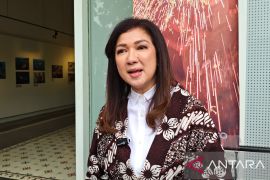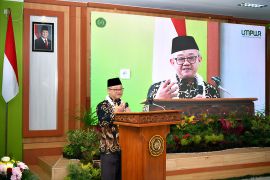The business forum, which brought together 11 Indonesian businessmen and 40 Bulgarian businessmen, demonstrated a variety of Indonesian products, including coffee, glass paintings, processed fruits, ceramics, construction services and furniture, according to a report made available to a correspondent of Antara on Tuesday.
Head of the Agency for the Assessment and Development of Trade Policies of the Trade Ministry Tjahya Widayanti led the Indonesian delegation to the meet.
Also present at the Indonesia-Bulgaria Business Forum, which was titled "Strengthening Economic Relations through Optimizing Bilateral Trade," were Bulgarian Deputy Economic Minister Lyuben Petrov, member of the Indonesia-Bulgaria Parliamentary Friendship Group Roumen Iontchev, Chief of the Bulgarian Investment Agency Stamen Yanev, and Secretary General of the Bulgarian Chamber of Commerce and Industry (BCCI) Vasil Todorov.
Moreover, Indonesian Ambassador to Bulgaria Bunyan Saptomo expressed hope that the forum will encourage businessmen of both nations to enhance trade relations. One of the missions of the Indonesian embassy in Sofia is to promote the Indonesian economy in Bulgaria, he added.
Widayanti said that the Indonesian government, under the leadership of President Joko Widodo, has set itself a target of realizing a three-fold increase in non-oil/gas exports by the end of 2019.
To that end, Bulgaria, as Indonesias potential economic partner in East Europe, will increase its imports from Indonesia to US$229.3 million by 2019, she noted.
Two-way trade between Indonesia and Bulgaria reached US$123.19 million in 2014, as compared to the US$96.16 million recorded a year earlier.
Furthermore, Bulgarian Deputy Economic Minister Lyuben Petrov stated that the Bulgarian government had adopted a long-term strategy to develop its economy by conducting trade promotions in several countries, including Indonesia.
He affirmed that his government offers tax allowances to businessmen wishing to invest in Bulgaria, besides zero percent tax for companies that employ a large number of workers in the European Union region.
Editor: Aditia Maruli Radja
Copyright © ANTARA 2015











